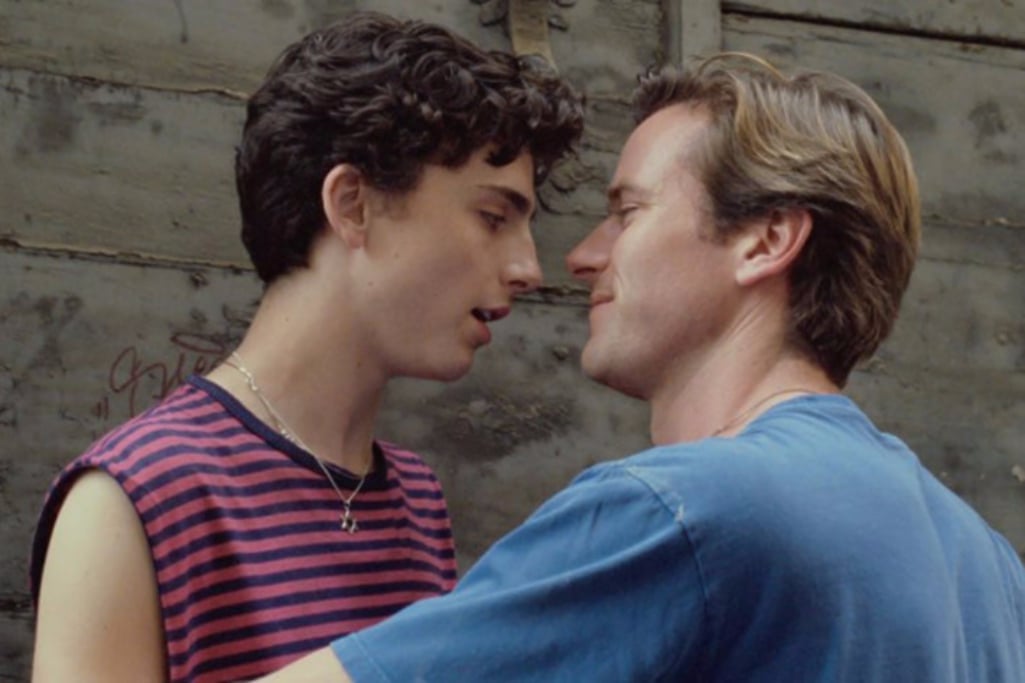‘Call Me By Your Name’ Is An Amazing Love Story, But Don’t Call It “Universal”

I bristle every time I hear the word “universal” used to describe a queer romance on screen. It’s not that non-queer people can’t relate to queer stories, or can’t understand their nuances. Instead, it’s about the desexualising of queer romance – turning the sex lives of LGBTQI+ individuals into something palatable for straight audiences.
It borders on condescending in much the same way Mia Freedman thought thrusting her wedding ring in oppressed faces was a defiant stance for LGBTIQ rights. This is why it was so disappointing to hear the director of Call Me By Your Name, Luca Guadagnino (I Am Love, A Bigger Splash), label it as such. And he’s not the only one – no doubt spurred on by the need to appeal to a broad audience for the sake of awards and box office dollars, a memo clearly went around the office with stars Armie Hammer and Timothée Chalamet diving deep on the idea of the film being for anybody who’s ever experienced first love, rather than anything explicitly queer.

The Importance Of Queer Representation
It’s particularly baffling, since Call Me By Your Name — a gay romance set across one sun-kissed Italian summer in the 1980s — is so good at showing how very not universal queer relationships were and still are.
These differences are why films like Call Me By Your Name are so important. They reveal worlds that are deeply rooted in our unique shared history of queer existence and are usually based on the very specific details of growing up gay, bisexual, transgender, queer, or questioning (or however else one chooses to identify, if they identify at all). Much like films about race, they work with a different set of building blocks that can’t be glossed over so easily.
Call Me By Your Name tells the story of Elio (Chalamet), a 17- year- old who spends his summers dictating Beethoven symphonies, burying his nose in books, and soaking up the sun with the cool Mediterranean breeze washing over him at his parents’ idyllic summer vacation home. His father (Michael Stuhlbarg, earning his likely Oscar nomination) invites an older American student, Oliver (Armie Hammer), to stay. Initially resistant to the preppy American’s charms, Elio and Oliver soon form a friendship that turns into something more serious.
André Aciman’s novel has been adapted by James Ivory — one half of the famed Merchant/Ivory team that brought us similarly prestige romance dramas A Room With a View, Howards End and Remains of the Day. Many fans of the book may wince that several characters have been excised and that an entire chunk of the novel’s narrative has been chucked out – for the better, I should add.
It will likely also disappoint that, as Guadagnino has suggested, some of the friskiness has been downplayed – the famous peach peach scene that I dare not spoil for those unfamiliar with the text is still there, albeit not quite as in your face (pardon the unintentional, but kinky pun).

Armie Hammer, dream boyfriend.
When asked about why he didn’t recreate the book’s sensual and occasionally rather kinky sex scenes, Guadagnino noted that, “I wanted the audience to completely rely on the emotional travel of these people and feel first love. I didn’t want the audience to find any difference or discrimination toward these characters. It was important for me to create this powerful universality.”
The Film Gets So Much Right
But then Call Me By Your Name often doesn’t feel like it needs the book’s sex scenes since it otherwise gets so much right, beginning with the effortless atmosphere of sumptuous and languid beauty that drips over every sun-drenched frame. I loved the way its characters are at times both painfully hard to read and yet also unabashedly honest. I loved how it treated sex equally as serious as it is playful and experimental. I found myself admiring how much it played up the see-sawing games of flirtation as much as it does the sexuality. And I saw far too much of myself, and my past relationship, in the way characters try to attract or repel, and come off confusingly somewhere in between.
Yes, a lot of these elements can be universal, but it seems undeniable to me that a gay audience will bring something altogether unique to their viewing of such a film. One scene, for instance, late in the film, features Elio’s father giving a speech to his son. A reverse ‘coming out’ of sorts that is so beautifully written and acted and filmed without histrionic bells and whistles that I have no doubt it will break the hearts of many viewers, gay or straight. But what makes it so potent is how it plays into — and in ways, subverts — the anguish and the pain of spending years hiding your biggest secret, afraid you could be disowned or even killed.

The very context of Call Me By Your Name is that Elio and Oliver’s romance is not just like any other. While it may be built around the noble notion that love is love, for most LGBTIQI+ people, love is also a battlefield that is uniquely different to what Hollywood so often offers up.
That audiences are now embracing these stories (see Moonlight winning Best Picture at the Oscars) in larger numbers proves they must continue to be told, but what makes them special is that rare perspective. It’s what makes them sing. It’s just a surprise that this film’s own maker doesn’t know how special his film really is.
—
‘Call Me By Your Name’ will hit Australian cinemas in November.
—
Glenn Dunks is a freelance writer and critic from Melbourne. He also works as an editor and with film festivals while tweeting too much at @glenndunks.